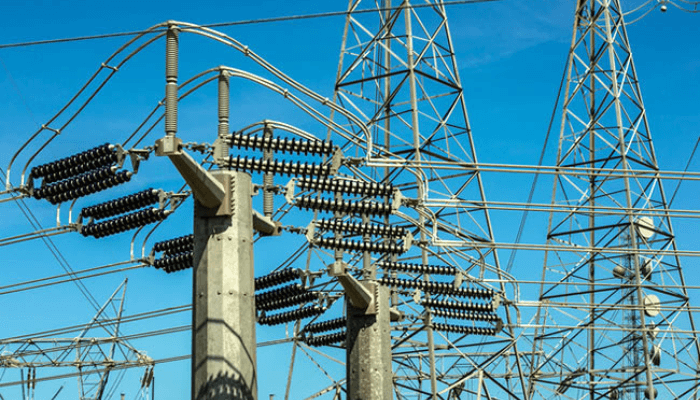Concerns are growing as Nigeria’s power decade privatisation process is set to end on October 31, 2023.
It has become increasingly difficult as a result of Nigeria’s decades-long power issue.
For over 62 years, the country’s energy value chain has been plagued by problems ranging from distribution to generation and transmission.
Meanwhile, the government attempted to break the jinx in the country’s ailing power sector, first with the establishment of the now-defunct 2005 Electric Power Sector Reform (EPSR) Act, then with the start of the privatisation process on November 1, 2013.
DAILY POST remembers that the government began privatizing Nigerian electricity distribution and generation companies in November 2013, based on a 10-year embargo on operational licensees, in the belief that the decision would end the country’s long-running power crisis.
However, a decade later, the power industry’s difficulties have remained unresolved, constituting a constant stumbling block in Nigeria’s economic advancement.
The energy distribution firms are dealing with cash challenges and low remittances, which are exacerbated by the metering gap; meanwhile, the generation companies are dealing with poor investment and transmission inadequacies, resulting in frequent system outages.
For years, the government struggled to provide 5,000 megawatts of electricity per day to a population of more than 200 million people.
According to the Nigerian Electricity Regulatory Commission’s (NERC) report for the second quarter of 2023, the generation capacity of the 26 power plants fell to 4,387.91MW.
In addition, the annual capacity payment loss in the sector was N214.93 billion in 2015, N273.32 billion in 2016, N236.47 billion in 2017, and N264.08 billion in 2018. Annual capacity payment losses in the sector in 2019, 2020, 2021, and 2022 (January – August) were N256.97 billion, N266.10 billion, N159.86 billion, and N88.13 billion, respectively.
Despite the government’s intervention at various periods, the problems have persisted.
Remember that the Federal Government announced a loan of N213 billion to the privatized power providers on September 30, 2014.
Similarly, on March 1, 2017, the Federal Government allocated N701 billion as a power assurance guarantee fund for the Nigerian Bulk Electricity Trading Plc to pay for generation companies’ electricity for two years.
In 2019, the government additionally gave the sector with another N600 billion payment guarantee facility; nonetheless, the nation’s electricity industry has continued to suffer despite these measures.
The underperforming economy is a result of the electricity sector’s issues.
For example, the Manufacturing Association of Nigeria revealed in June that its members lose N10.1 trillion annually due to the electricity sector issue.
However, with President Bola Ahmed Tinubu’s signature of the 2023 Electricity Bill on June 9, stakeholders speculated that this may bring about the much-needed transformation in the industry if adopted across the board.
Beyond words, Nigeria’s Minister of Power, Adebayo Adelabu, would need to provide the sector with the necessary policy guidance.
On Monday, Wumi Iledare, Professor Emeritus and Executive Director of the Emmanuel Egbogah Foundation, told DAILY POST that the 2023 Electricity Act represents a new horizon for the country’s electricity sector.
He stated that the way forward is to ensure that the Electricity Act is properly implemented.
“My advice remains the same: decentralize the power sector by establishing proper regulatory institutions at the state and federal levels.”
“The Electricity Act, as amended, is progressive. Of course, having a good legislation is one thing; following the intent of the law is quite another.
“I am still convinced that, at Nigeria’s current level of development, vertical integration in the power value chain is a viable market option for value optimization.”
“NERC, as a regulatory institution, must step up to the plate.” The Ministry of Power is a policy entity, not a regulatory one; it cannot, therefore, be a commercial one.
“I believe the market structure adopted for power privatization has been flawed since its inception.” Consider the executive turnover at Disco. As licenses expire, it is necessary to restructure the power market for economic efficiency. Diseconomies of scale are too common in the Disco market jurisdiction.
“Owning a stake in Discos reminds me of Joint Ventures in Nigeria’s oil and gas industry.” What is the purpose, one would wonder? FG revenue boost or energy security mantra?
“If investors from all over the world can invest in the telecom industry, why not open up the power industry to global investors?”
“Finally, Nigeria’s economy is dormant as a result of low energy consumption caused by energy availability, accessibility, affordability, and adaptability.” The way forward is for the Electric Power Act to be properly implemented in order to reform the power industry and restructure the energy distribution markets under state institutional supervision.
Kunle Olubiyo, President of the Nigeria Consumer Protection Network, also criticized the framework for privatizing the power sector.
According to him, the expiration of the Performance Agreement and Licensee Moratorium would allow the government to restructure the sector.
“The Performance Agreement and Licensees Moratorium were not granted to last indefinitely.
“It was initially intended to last five years (2013-2018).”
“It was unexpectedly extended by five years, bringing it to ten years (2013-2023).”
“Throughout this, no significant regulatory efforts were made to evaluate licensees based on Key Performance Indicators, Service Agreements, Performance Agreements, or vesting Contracts.”
“Key Performance Indicators are primarily based on timelines, actions, deliverables, and so on.”
“It is obvious that all is not well, and the beneficiaries in and out of government, as well as the licensees, will go to any length to ensure that nothing is done to address the situation.”
“In the current circumstances, our efforts aim to arouse public conscience and consciousness.”
